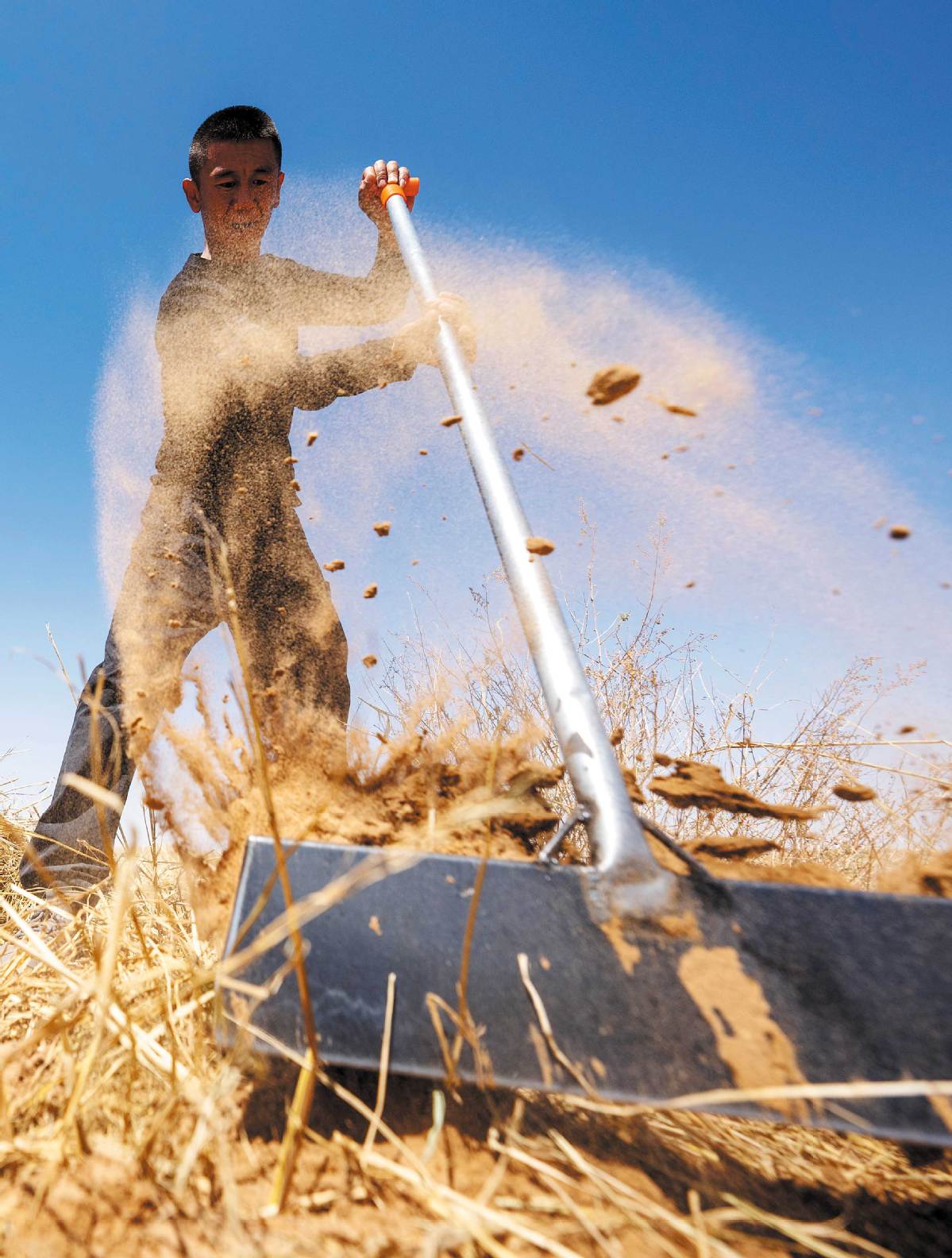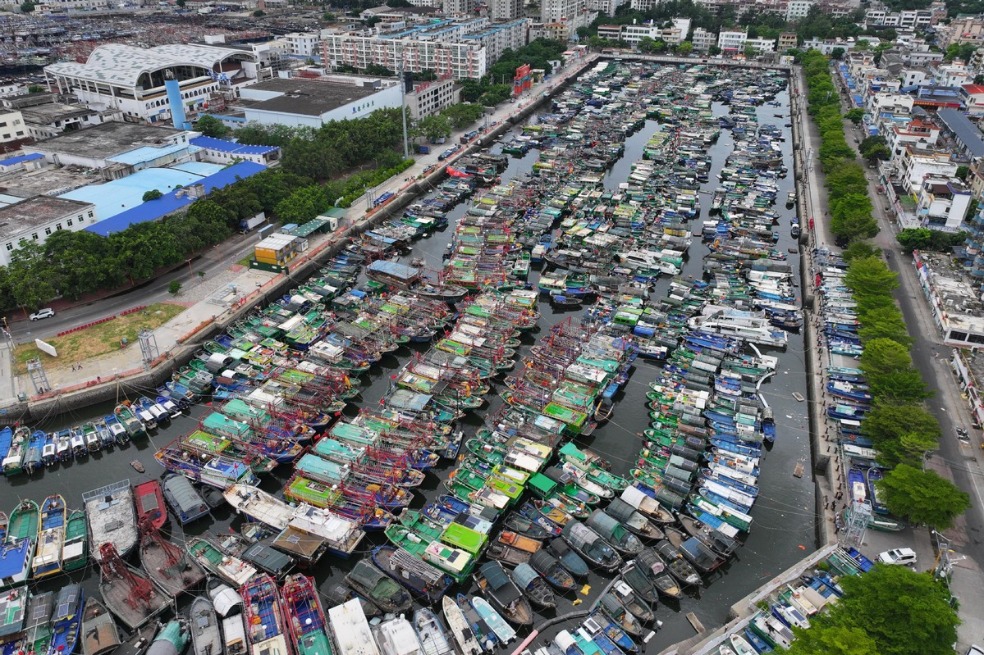Plantings promote fight against desertification
Rural workers rely on drought-resistant species to curb sand spread in Gansu, Inner Mongolia

Editor's note: As protection of the planet's flora, fauna and resources becomes increasingly important, China Daily is publishing a series of stories to illustrate the country's commitment to safeguarding the natural world.

In the predawn silence at 4 am in Wuwei city, Gansu province, Guo Xi rises from slumber.
His day starts with tending to the free-roaming chickens on a shared farm in the desert, tidying up their coops and preparing their feed, which is made from corn kernels.
By the time dawn breaks, Guo has already finished breakfast and has made his way to the water storage station. There, it takes about 10 minutes to fill the water tank attached to his truck to capacity.
He then drives the fully loaded 15-metric-ton water truck toward the desert.
A third-generation ranger at the Babusha forest farm, Guo's primary daily task is to take care of the vegetation on the 300-square-kilometer desert. With each truckload of water nurturing about 100 trees, he has to make 10 round trips from the water station to the desert each day to complete the task, working until nightfall.
"If I wake up earlier, I can make a few more trips to transport water, so that I can care for more trees," he said.
For the past eight years, Guo, 39, has shouldered the responsibility of leading sand control initiatives in his homeland. He is one of many residents contributing to the development of a national ecological security barrier in the western region.
Located at the southern edge of the Tengger Desert, China's fourth-largest, the Babusha farm — "Eight-step Sand" farm in Chinese due to people claiming sand was just eight steps from their doors — suffered from severe desertification in the last century, resulting in the displacement of many of the locals. The speed at which sand encroached upon farmlands and villages surged to 7.5 meters per year by the 1980s.
Recognizing the severity of the ecological problem, the Gulang county government, which is administered by Wuwei, introduced a contract responsibility system in 1981 to motivate residents to engage in anti-desertification initiatives. Under this system, people were tasked with managing a specific area of the desert while also enjoying the economic benefits resulting from their endeavors in reclaiming and revitalizing the area.
Although the Gulang government also promised to offer sapling subsidies at 75 yuan ($10.50) per hectare, residents were still unwilling to participate because of the extreme difficulty of desert control. Only six people were willing to bear the responsibility of managing the Babusha farm, which covers an area of 50 sq km.
Considering the time-consuming nature of desert control, they also pledged to ensure that at least one descendant in each generation would shoulder the responsibility.
"My grandfather was among the six, but I had no insights on desert management until 2016," Guo said.























